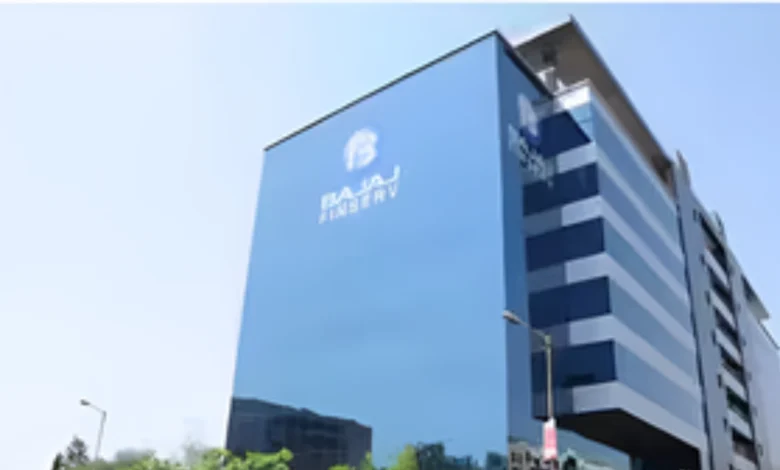Bajaj Finserv Shares Decline Amid Insurance Deal Announcement – Detailed Analysis

Bajaj Finserv’s shares continued their downward trend, slipping by 0.53% during intra-day trading on Friday, settling at ₹1,842 on the National Stock Exchange (NSE). This recent drop adds to the stock’s declining performance over various timeframes. It has fallen by over 1% in the past five days, nearly 2% in the last month, and over 4% during the last six months.
Impact of Insurance Stake Acquisition
The declining stock price follows Bajaj Finserv’s recent announcement to acquire Allianz SE’s 26% stake in two joint ventures: Bajaj Allianz General Insurance and Bajaj Allianz Life Insurance. The acquisition, valued at ₹24,180 crore (approximately $2.83 billion), will give Bajaj Finserv full ownership of both insurance companies.
Before this deal, Bajaj Finserv held a 74% stake in both ventures, with the remaining 26% owned by Allianz SE. With the new agreement, Bajaj Finserv will spend ₹13,780 crore to acquire the general insurance business and ₹10,400 crore for the life insurance arm.
End of a 25-Year Partnership
This acquisition marks the end of Bajaj Finserv’s 25-year partnership with the German insurer, Allianz. Sanjiv Bajaj, chairman and managing director of Bajaj Finserv, praised the collaboration, stating that it played a key role in maintaining strong solvency margins and helped the company collect over ₹40,000 crore in premiums.
Sanjiv Bajaj expressed optimism about the future, saying that full ownership of the insurance businesses would open up new growth opportunities and allow for more flexibility in operations.
Allianz’s Strategy Post-Deal
Allianz, meanwhile, has confirmed its continued commitment to the Indian market. The company plans to reinvest the proceeds from this deal in new opportunities that align with India’s “Insurance for All by 2047” vision. This vision aims to improve insurance penetration in India and ensure greater access to financial products for all citizens.
Financial Performance Overview
Despite the decline in its stock price, Bajaj Finserv’s financial performance has remained solid. The company reported a 3% increase in its consolidated net profit for the third quarter of FY25, rising to ₹2,231 crore compared to ₹2,158 crore in the same period last year.
Revenue from operations also grew by 10%, reaching ₹32,042 crore in Q3 FY25, up from ₹29,038 crore in the same period last fiscal year.
Subsidiary Performance and Asset Quality
One of Bajaj Finserv’s key subsidiaries, Bajaj Finance Limited, showed mixed results in the same quarter. The gross non-performing assets (GNPA) ratio rose to 1.12% in Q3 FY25, up from 0.95% in the same period a year ago. Similarly, the net non-performing assets (NNPA) ratio increased to 0.48% from 0.37%.
Loan loss provisions also surged, with the company setting aside ₹2,043 crore to cover potential bad loans, compared to ₹1,248 crore in Q3 of the previous year.
Key Takeaways
- Stock Price Trends: Bajaj Finserv’s shares have faced a steady decline, partly due to concerns over its major investment in the insurance sector.
- Insurance Deal Impact: Acquiring full ownership of Bajaj Allianz General and Bajaj Allianz Life Insurance will give Bajaj Finserv greater control over its insurance operations, though it comes at a high cost.
- Future Growth: The company remains optimistic about unlocking growth opportunities through full ownership, while Allianz plans to reinvest in India’s insurance market.
- Financial Health: Despite stock fluctuations, Bajaj Finserv’s revenue and profits continue to grow, though rising NPAs and higher loan loss provisions at Bajaj Finance may pose challenges.
Conclusion
Bajaj Finserv’s insurance acquisition deal is a strategic move aimed at strengthening its position in India’s growing insurance market. However, the rising costs and market concerns have contributed to short-term pressure on its stock price. Investors will be closely monitoring the company’s future financial performance and how effectively it leverages full ownership to achieve long-term growth.
